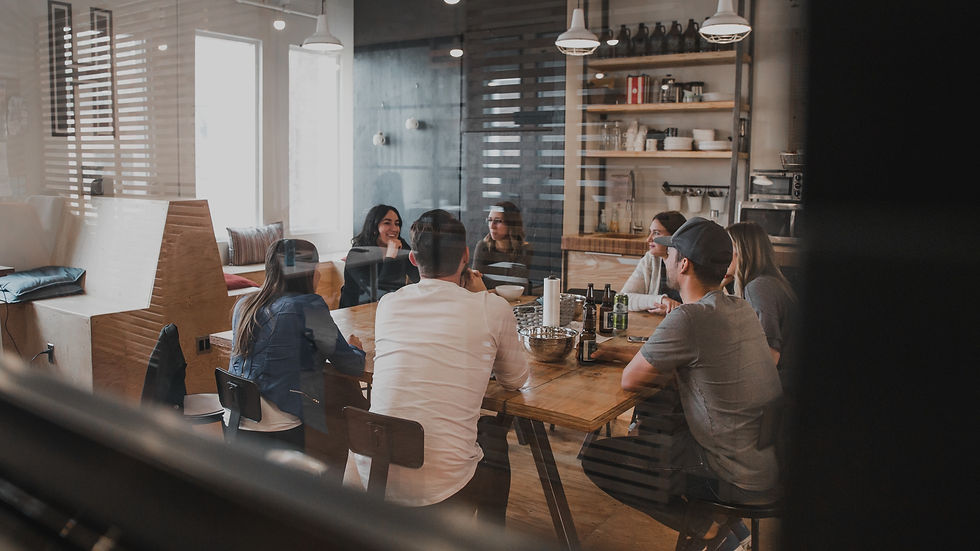Tips to Support Employee Health and Performance Amidst COVID-19
- Victoria Grainger

- Mar 20, 2020
- 4 min read
Updated: Jan 8, 2022

There have been two notable global pandemics in the last century. The first was the 1918 Spanish Flue (H1N1) and the swine flu (also an H1N1 strain) in 2008. In 1918, the Spanish flue was first identified in military personnel and affected one-third of the global population and killed an estimated of 20-50 million people. Like today, schools and businesses were closed, which led to a tremendous impact on the economy and people’s livelihoods, health and well-being. While the 1918 global pandemic was the most devastating, many of those that pulled through, came out stronger. And, the worlds’ authorities, such as the Centre for Disease Control and Prevention and World Health Organization, have learned better ways to stop the spread. Yes, today’s situation is different: our health care system capabilities are different, business is different, the virus is different, and the economic hit is different. However, we have, and we will, pull through once again. Sometimes a little help is all that is needed.
As employer’s, HR professionals or workplace wellness practitioners, the most important thing we can do is to support each other’s physical and mental well-being so that we can not only pull through, but keep the wheels turning to reduce the impact on the well-being of business. People are afraid. People feel isolated. When we are living in a state of anxiety, our higher cognitive functioning doesn’t work as well. Our ability to see the big picture fades away. It is now more important than ever to support well-being. Our minds and bodies are inextricably intertwined, so let’s take care of each other.
Here are some health and performance tips to support our greatest asset, our people.
Support for remote workers
If employees are working from home, make sure they are equipped with, or have a space at home, that is ergonomically appropriate. Providing employees with this checklist can help them get set up for success on their own. Remind them to keep the same routine. If they've got kids at home, keep all calls kid-friendly. We are all in this together!
Be mindful and promote mindfulness
Everyone reacts to stress differently. Respect people’s differences. To help support everyone, provide people with mindfulness exercises to support overall mental well-being. Our resilience tip sheets have a few great tips you can share. Or, encourage staff to try one of the following.
Youtube meditation video
Promote frequent breaks, and fresh air
It is easy to be very distracted in a time where there is breaking news about the evolution of a new virus that impacts people’s lives, well-being and the economy. Promote frequent breaks that provide a positive distraction. Send out a regular calendar invite as a friendly reminder to take a break. Include some suggestions in the notes. For example, encourage people to bundle up and go for a walk, do some exercise, drink some tea, do a puzzle, meditate or connect with a loved one. Encourage breaks that provide a positive distraction and encourage people to get a little bit of fresh air.
Promote physical activity
While people are cooped up at home, without access to a gym, it can seem like there are few options to stay active. Right now, YouTube is your friend. There are tons of videos that the whole family can enjoy. Here are a couple of ideas that are free, but remember, the options really are endless.
Social connection
We are physically disconnected from colleagues and sometimes our loved ones, but we can still stay in touch. Connect with remote works frequently, even a 10-minute video touch base every other day can do wonders to help with engagement and morale. If you are unfamiliar with video calls, try Microsoft team, Zoom (free for one-on-one calls and groups calls under 40 minutes), Skype (free when using internet only), Facetime or What’s app (phone only), or any other platform you are familiar with. If you don’t use video calls, a friendly voice can help too. Read more on this topic.
Nutrition
There is a link between mental health and diet. And, as a Harvard article points out, like an expensive car, your brain functions best when it gets only premium fuel. The results of a recent study also showed the risk of depression was 25 to 35 per cent lower in people who ate the Mediterranean or Japanese diet vs a diet high in vegetables, fruits, seafood, unprocessed grains and a little amounts of lean meats and dairy, processed and refined foods. Now that many have more time to cook, create a sense of community by featuring an employee recipe once a week, or heck, even once a day! Read more on this topic.
Hand Hygiene
If employee are still working on-site, post hand washing posters to encourage good hand hygiene. And of course, make sure to sterilize high touch areas after every new contact.
There are many ways to support employees who are working remotely, or in a stressful situation. Please visit our resources page with resilience tip sheets, breathing exercises, mental health resource handouts and more available to download.
If you are looking for more formal support, we also offering interactive online resilience, well-being and productivity training.
Remember, we will get through this. Today’s challenges will be tomorrow’s strengths.
![wwc-logo-transparent-png.png[80].png](https://static.wixstatic.com/media/6884e0_850f8b03110649f2892fc04639a82ea1~mv2.png/v1/fill/w_104,h_69,al_c,q_85,usm_0.66_1.00_0.01,enc_avif,quality_auto/wwc-logo-transparent-png_png%5B80%5D.png)



Comments